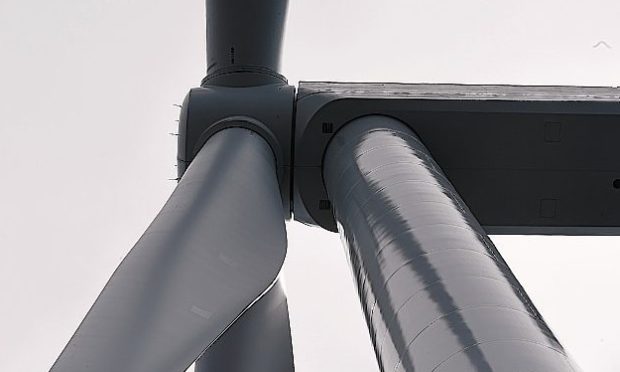Wind farms owner The Renewables Infrastructure Group (TRIG) has announced soaring profits a year after being hit by the UK Government decision to end subsidies for onshore projects.
The London Stock Exchange-listed investment trust, which owns several wind farms in the north and north-east, said its pre-tax profits had more than trebled to £67.9million in 2016, thanks to an uplift in its portfolio valuation.
TRIG, which also owns 28 solar photovoltaics (PV) energy schemes in England and France, suffered a £20.2million “one-off valuation hit” the previous year following government’s decision to change renewables incentives. The group’s pre-tax profits for 2015 were £17milllion.
Among TRIG’s portfolio of 25 UK and French wind farms are projects at Forss, in Caithness, Rothes and Hill of Towie, in Moray, Meikle Carewe, near Stonehaven and Mid Hill, south-west of Aberdeen. The sites are managed for the Guernsey-based investment trust by renewables company RES.
The value of the company’s portfolio grew £818.7 million in 2016 from £712.3 the previous year.
In a statement issued yesterday, the group said: “In 2016 the company continued to perform well against a challenging global political backdrop, heightened economic uncertainty, weak power prices and lower wind speeds.”
“The cornerstones of this performance are the company’s strategy to invest in a high quality, predominantly operational portfolio diversified by technology and geography and the specialised capabilities of our managers.”
TRIG said it had invested around £77.7 million in its portfolio last year, increasing the net generating capacity of the wind farms and solar projects in its portfolio by 8.0% to 710 megawatts.
The company added that its current “pipeline” of expected business totals around £100million of projects, mostly in the onshore wind sector, at an advanced stage of discussion.
Looking ahead, the group noted that the market for secondary purchases was becoming “increasingly competitive.” TRIG said the Brexit vote has not yet had any negative impact on it and currency effects have so far been positive on its portfolio.
The UK Government announced in 2015 that the Renewables Obligation (RO) would close to all new generating capacity at the end of next month. Introduced in 2002, placing an obligation on UK suppliers to source an increasing proportion of electricity from renewable sources, it has been one of the main support mechanisms for large-scale green energy projects.
